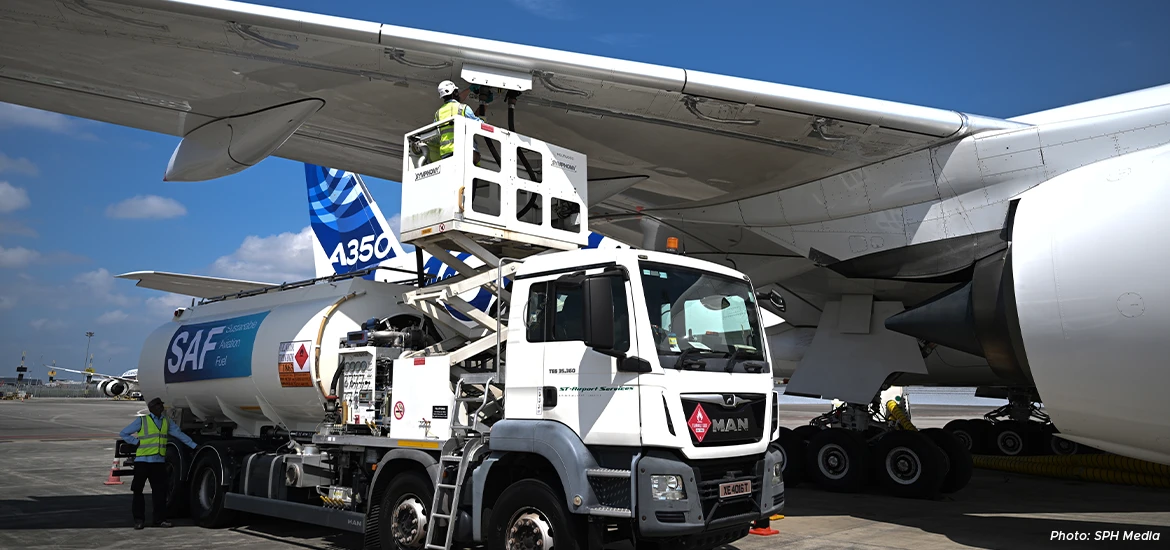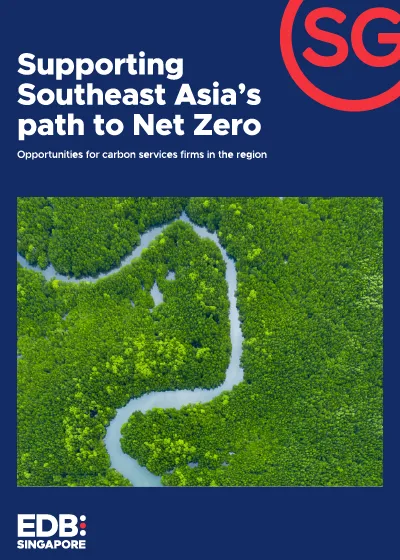Green Fuel Forward is a capacity-building initiative aimed at drawing in airlines, refiners, logistics companies, banks and others. A total of 16 companies and organisations have agreed to participate, including Boeing, Climate Impact X, DBS Bank, DHL, the International Energy Agency, Neste, Qantas, Singapore Airlines, Temasek, and UOB.
A key focus of the initiative is to boost the take-up of SAF certificates by companies to offset their own emissions or the travel emissions of their employees, for example.
The certificates can be bought on exchanges, such as Singapore’s Climate Impact X, and each is linked to the creation of one tonne of SAF.
Certificate buyers can track and claim the environmental benefits of using SAF, such as emissions reductions, without having to purchase the physical fuel.
The emissions reduction can be claimed once the tonne of SAF is burned, with the accounting process approved by ICAO.
The initiative will organise workshops and practical guidance tools to help organisations navigate topics such as environmental integrity and reporting practices for SAF and SAF certificates.
Globally, SAF still comprises a fraction of total jet fuel use. And in the Asia-Pacific, uptake is far slower than in Europe.
In 2024, Iata said SAF production reached one million tonnes (1.3 billion litres) – or about 0.3 per cent of global jet fuel production. This is double 2023’s production of half a million tonnes but far below the initial projections for 2024 of 1½ million tonnes.
Rules mandating SAF usage will drive up demand over time.
Flights departing from European Union airports must now use 2 per cent SAF in their fuel mix, rising to 6 per cent in 2030 and 70 per cent by 2050. For Japan, SAF must account for at least 10 per cent of domestic airlines’ jet fuel consumption by 2030.
In Singapore, 1 per cent of all jet fuel used at Changi and Seletar airports must be sustainable, with a goal to reach 3 per cent to 5 per cent by 2030.
Singapore Airlines and its budget arm Scoot are among those committed to reaching a goal of 5 per cent sustainable aviation fuel use by 2030.
There are other challenges for the industry, including ensuring the environmental integrity of feedstocks, such as land-based feedstock, which can lead to unintended consequences for deforestation, said Temasek’s chief sustainability officer Park Kyung-ah, during a panel discussion at the launch.
In Europe and the US, governments have also expressed concerns about reports of virgin palm oil being fraudulently added to boost used cooking oil supplies to SAF refineries. The EU forbids the use of virgin palm oil as an SAF feedstock.








